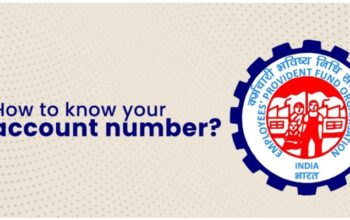With the advent of GST, there was an extensive influence on most goods and services, impacting the price of commodities. With the new taxation regime, gold is one such product whose price got severely impacted. This impact has been observed at different levels – imports of gold, gold value and gold jewellery making charges.
It has been anticipated that the introduction of GST on gold will bring clarity and accountability to the sector. However, contrary to the expectations, dealers are shifting to the disorganised gold market and importing raw gold due to the rise in rates.
GST rate on gold value
After the application of GST, a tax of 3% is imposed on gold and gold jewellery making charges. When the final consumers purchase gold ornaments, this price is passed to them. Before the application of GST on gold, a VAT of 1% and a service tax of 1% was levied on the cost of gold.
GST on gold ornaments
In a country like India, gold is primarily imported from overseas, utilised further to make ornaments. International imports do not fall under this category. A GST authorised entity or business transports gold from overseas and pays 10% tax as customs duty on gold imports, rather than paying GST on gold.
Revised tax rates under GST on gold products
After the introduction of GST in 2017, it was observed that it brought massive changes in the taxation system. Registering for GST is an important parameter for individuals willing to avail funds for business expansion.
As already mentioned, 1% of service and value-added tax was imposed on gold before GST implementation. Therefore, an additional 2% tax was charged on the selling price to the consumers. There was a massive price hike on gold when a 3% fixed tax was levied on it.
However, there was a relaxation of gold making charges as it was reduced to 5% against 18% before GST was introduced. This is one of the ways how GST affects gold jewellery.
Effect of GST on gold in various sectors
Following are the sectors which are affected by the revised rates of GST.
- Organised sector
Presently, only 30% of the gold sector is properly organised. Though the latest impact of GST on the organised sector will increase accountability and clarity, it may have a negative impact. The increased rate may lead retailers to smuggle gold or sell products without any bill.
- Unorganised sector
Out of the 700-800 tonnes of gold imported to our country, around 30 tonnes are illegally imported, especially via the Middle East. This encompasses the unorganised sector. After the hike in gold import rates, such illegal activities are expected to increase. This is why various tradesmen have been requesting the Government to minimise the import duty on gold. However, since GST regime asks sellers to keep a record of every transaction, it will definitely improve accountability and authenticity to a greater degree.
Factors to consider before purchasing gold
Here are the few points one must consider while purchasing gold products:
- Carefully check gold price
Primarily, the weight and purity of gold determine its cost. Since the price of gold products varies and changes depending on the gold rate change, individuals must thoroughly check the same before purchasing.
- Verify gold purity
One of the essential factors to consider before purchasing gold is its purity. It is determined by the hallmarking symbol, which is attributed to ‘the Bureau of Indian Standards’. 24 Karat is the highest quality of gold available.
- GST on gold rate
Individuals must ensure to get proper bills mentioning all the details related to the cost of gold purchase. Under GST regime, a 3% tax on gold value and 5% making and labour charges are imposed on jewellery. However, individuals can negotiate with jewellers to minimise this cost.
Apart from these, borrowers can calculate GST like a pro using a GST calculator and understand the total cost of gold before making the purchase.
As for gold business owners looking to avail an advance to maintain their venture’s cash flow, the GST returns can serve as viable proof of their eligibility.
Several reputed financial lenders like Bajaj Finserv offer business loans to meet varied financial requirements.
To streamline the loan disbursal procedure, several financial lenders also extend pre-approved offers on business loans, credit cards, personal loans etc. These offers can help expedite the lending process. Individuals can check their pre-approved offer by submitting essential credentials.
While the introduction of GST has maximised transparency, this benefit has mostly been concentrated on the organised sector. Resultantly, it has been anticipated that smaller gold retailers will move into unorganised sector to avoid GST on gold sales.



